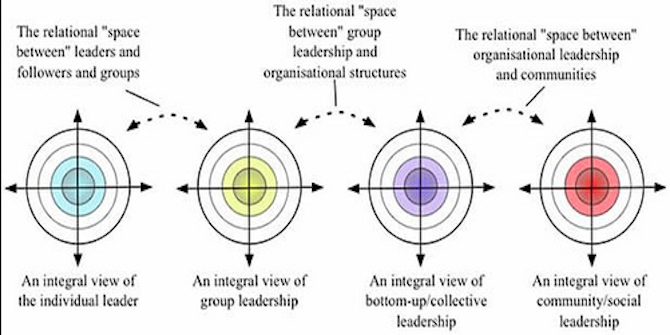It is often claimed that we live in a secular age. But we do not live in a desacralized one. Sacred forms – whether in ‘religious’ or ‘secular’ guise – continue to shape social life in the modern world, giving rise to powerful emotions, polarized group identities, and even the very concept of moral society. In his recent book, Gordon Lynch sets out a theory of the sacred drawing on Durkheim’s work and asks us to develop moral reflexivity, which Eric Taylor Woods finds unconvincing.
 The Sacred in the Modern World. Gordon Lynch. Oxford University Press. February 2012.
The Sacred in the Modern World. Gordon Lynch. Oxford University Press. February 2012.
In this well-written and thought-provoking book, Gordon Lynch sets out to develop a theoretical framework for analysing the sacred in the modern world. For readers unfamiliar with the concept; the sacred refers to taken-for-granted norms that exert claims upon the social life. In other words, the sacred denotes the moral dimension of the social life; it is that which we hold as ‘good’ (even if, as Lynch discusses in the book, it can often have negative consequences). Examples of sacred forms might include belief in the value of human rights or in the ethnic purity of one’s nation. Before reviewing Lynch’s treatment of the sacred, I should make clear my affinities with his approach. If I am at all critical, it is in the spirit of humbly seeking to develop it rather than detract from it.
In the first part of the book, Lynch reviews how the sacred has been treated in the scholarly literature. He identifies two main interpretations: ontological and cultural. Lynch is critical of the former, which he traces through the work of Rudolph Otto, Mircea Eliade and Bernhard Giesen, among others. In Lynch’s view, the problem with the ontological interpretation is that it defines the sacred as an objective universal phenomenon, thereby ignoring how and why particular sacred forms arise in different social contexts. A better interpretation, according to Lynch, is the cultural sociological interpretation, which he locates in the writings of Émile Durkheim, Edward Shils, Robert Bellah and, especially, Jeffrey Alexander. For Lynch, this latter approach is superior because it treats the sacred as culturally constructed within historically contingent contexts, which paves the way for uncovering how different sacred forms arise and their influence on the social life.
Lynch then tests and extends the cultural sociological framework via two case-studies. In the first case study, he analyses why the abuse and neglect of children was endemic in the Catholic-run Irish industrial school system. By suggesting that the definition of Ireland as a Catholic nation deflected criticism of the schools, Lynch shows how one sacred form (i.e. the nation) took precedence over another sacred form (i.e. children). In the second case-study, Lynch explores the significance of public media in constructing, reifying and contesting sacred forms through an analysis of the decision of the BBC not to broadcast a humanitarian appeal for the victims of Israel’s military action in the Gaza strip in January 2009. Here Lynch shows how, for many British citizens, the BBC’s decision ruptured its capacity to mediate the sacred.
Finally, Lynch engages in a normative discussion in light of his findings that sacred forms can have both positive and negative consequences, which he refers to as the ‘light’ and ‘shadow’ of the sacred. Arguing that it is not possible to banish the sacred entirely from the social life, Lynch asks how we might mitigate its shadow. He suggests that societies should nurture the capacity for critical reflection on their sacred commitments, referred to as ‘moral reflexivity’. Lynch further argues that the increasing diversity of sacred forms in the late-modern era may prove to be helpful in this regard by making it more difficult for one segment of society to impose its interpretation of the sacred. Here Lynch suggests that societies characterized by multiple sacred forms should develop a type of ‘moral agonism’, in which competing segments of society would peacefully contest their norms.
This book has much to recommend. Although it should be properly seen as an attempt to refine the approach developed by Alexander rather than to develop a wholly new theory, the book nevertheless provides numerous important contributions. Lynch’s identification of two broad streams of thought on the sacred is a much needed elucidation of the field that may shape future research and debate. Also, his discussion of the differences between the sacred (i.e. ‘good’), profane (i.e. ‘evil’) and mundane (i.e. everyday life) is cogent and informative. The empirical section of the book is a good illustration of Lynch’s framework and the cases he analyses are fascinating. I especially found the normative part of the book to be engaging. Cultural sociologists are generally wary about treading too far into normative theory and Lynch’s willingness to do so is refreshing. Yet, this was also the part of the book I disagreed with most. Working through my reasons why, however, has done much to clarify my own position and, in this sense, I value his argument.
Should we seek to develop moral reflexivity, as Lynch suggests? And is this even possible? I believe that the answer to both of these questions is no. Lynch is right to point out that there is a shadow side to the sacred and history is replete with examples of this. But does this justify fostering reflexivity about our sacred commitments? For example, should those that believe the Holocaust is evil be made to reflect upon the possibility that this is but one interpretation among many? I hope not. Luckily, I do not think this is even possible. It is the impossibility of being reflexive about the sacred that, in part, defines it. Thus, the impossibility of denying the evil meaning of the Holocaust reveals its sacrality. By contrast, if many of us in the West have become reflexive about certain sacred forms, such as institutional religion, this indicates that they are no longer sacred. To acknowledge that Christianity does not have all the answers is an implicit acknowledgement that it is no longer sacred.
Probably Lynch did not mean for us to become reflexive about the evil meaning of the Holocaust. But how then would we choose which sacred forms to critically reflect upon? It is this question that reveals the moral agonism that Lynch propounds to be a chimera. It is an arena for debating norms that are no longer held to be sacred, at least by the elites that set the terms of debate. Meanwhile, the norms that are sacred and inform such terms are hors du débat. If we were to allow a true conflict over the sacred to take place, there can be no terms of debate and we cannot assume that it would be peaceful. Given the impossibility and ethical ambiguity of fostering moral reflexivity, I therefore submit that the task remains to find universal sacred forms.
——————————————————————————————-
Dr Eric Taylor Woods recently completed a PhD at the London School of Economics and Political Science. Presently, he is finalizing a book for Palgrave on the acknowledgement of the injustice, with particular reference to settler-indigenous relations in Canada. He is also co-editing a book for Routledge on the role of rituals and performances in the forging of national identity. He teaches in Birkbeck’s program in nationalism and ethno-religious conflict. Read more reviews by Eric.






